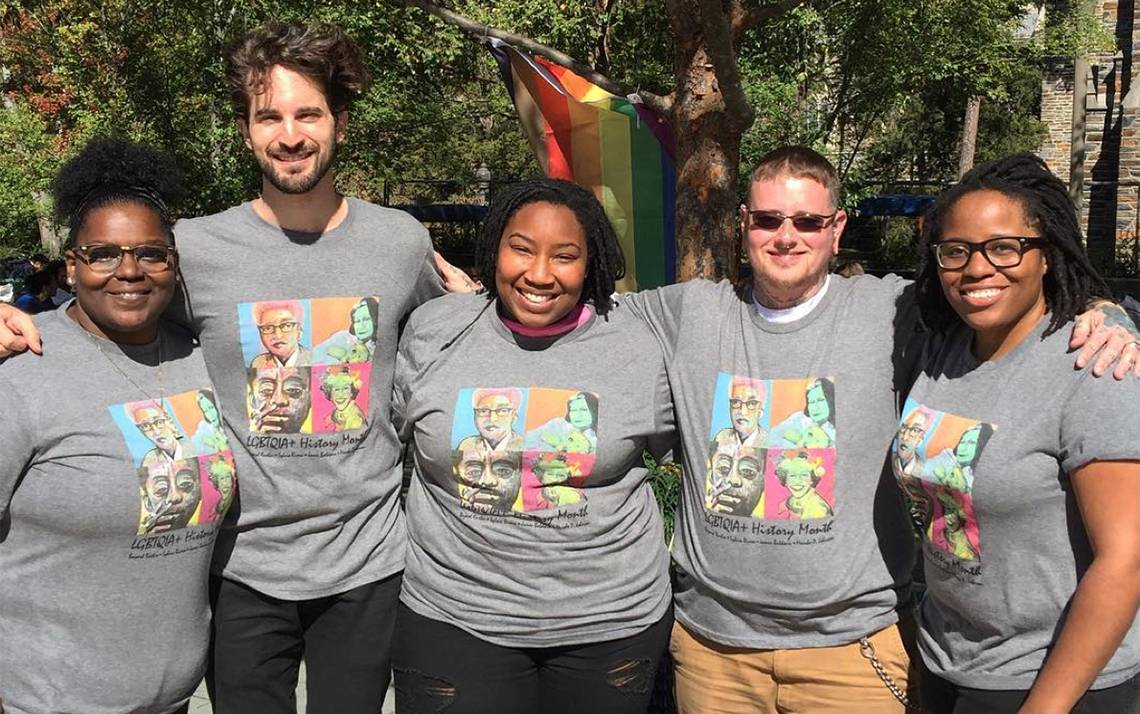Have Some P.R.I.D.E.
Center for Sexual and Gender Diversity offers LGBTQIA+ workshops

As academic dean of Trinity College of Arts & Sciences, Rachael Murphey-Brown’s office is a revolving door of students who want to meet with her to discuss their futures.
On any given week, Murphey-Brown sees dozens of students of various ethnic, religious and LGBTQIA+ identities. To better serve her diverse community, Murphey-Brown enrolled in the Duke Center for Sexual and Gender Diversity’s “Duke P.R.I.D.E. Training” and “Trans 101” workshops.
“Deans often see students in times of crisis or when they’re struggling,” Murphey-Brown said. “These trainings help me learn how to help a student who might be dealing with something personal. I always have empathy and compassion, but the Center for Sexual and Gender Diversity gave me insight into what LGBTQIA+ students are dealing with.”
Since the Center for Sexual and Gender Diversity (CSGD) introduced the two trainings in 2015, about 1,200 people have attended the workshops annually. The first P.R.I.D.E. Training sessions of 2018 will be held from 9:30 a.m. to 1 p.m. Jan. 17 and the first Trans 101 workshop from 11 a.m. to 1 p.m. on Feb. 7.
Here’s information on each workshop:
- P.R.I.D.E. stands for “Pursuing Respect, Inclusion, Diversity and Equity.” The training aims to increase awareness of issues that affect LGBTQIA+ communities by covering topics like language, identities and creating inclusive communities through an intersectional social justice lens. Hypotheticals are also discussed, like what to do when someone’s name and gender expression doesn’t match one’s identification. P.R.I.D.E. workshops are scheduled monthly and last 3.5 hours over the course of one day.
- Trans 101 is a two-hour workshop that focuses on identities and dives into the experiences and challenges the transgender community faces. Attendees partake in an activity in which they find out how easy or difficult navigating life can be with a particular gender or sexual identity.
“People rely on us to provide information, especially in the context of Duke,” said Nick Antonicci, CSGD director. “We have these trainings so we can reach as many people as possible with the numbers we have.”
Departments, offices and individuals can request Trans 101 or P.R.I.D.E. trainings. For Trans 101, at least five individuals must attend. For P.R.I.D.E. Training, between 18 and 30 participants must be present.
“These trainings are just the beginning of a series of intentional actions you make to be inclusive to the entire community,” said Angel Collie, assistant director of the CSGD.
Jen Fry, a program coordinator for the Office of Undergraduate Scholars and Fellows, attended a Trans 101 training shortly after getting hired in July 2016. Fry said the training strengthened her knowledge on what language to use based on someone’s gender expression.
“As a straight person, I feel that I need to be the best ally possible,” she said. “Language is the most important thing. It can be used to make somebody feel welcomed and comfortable.”